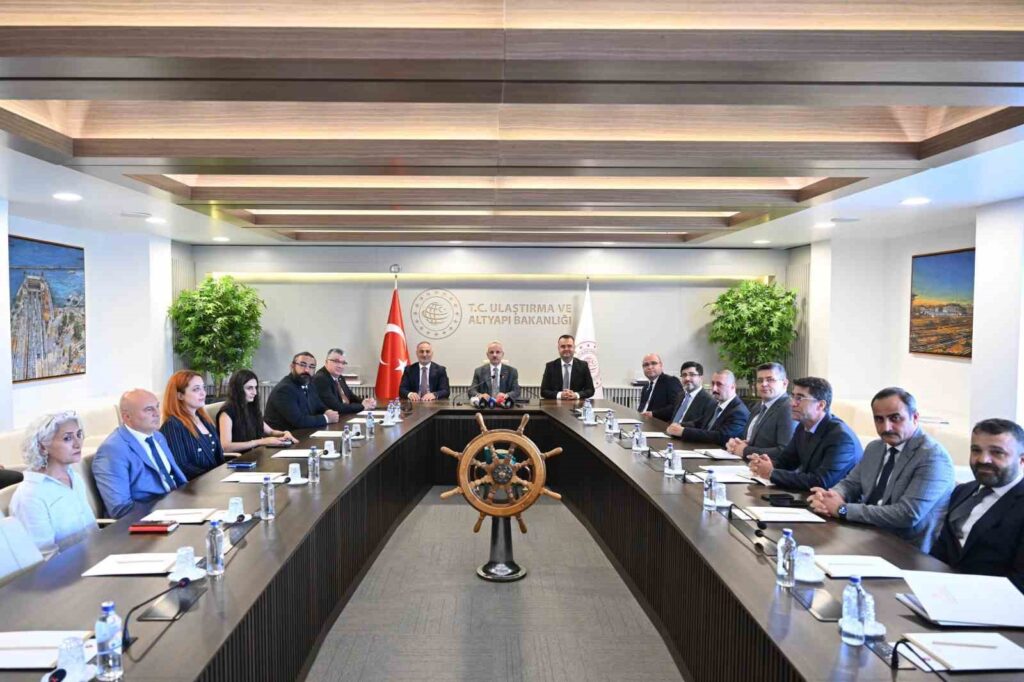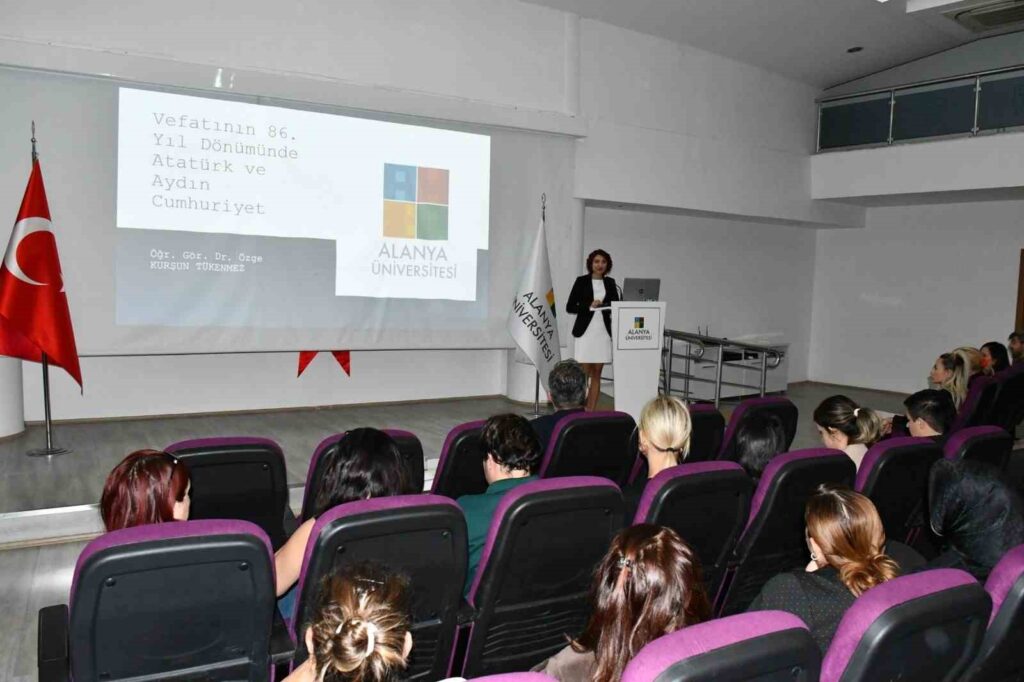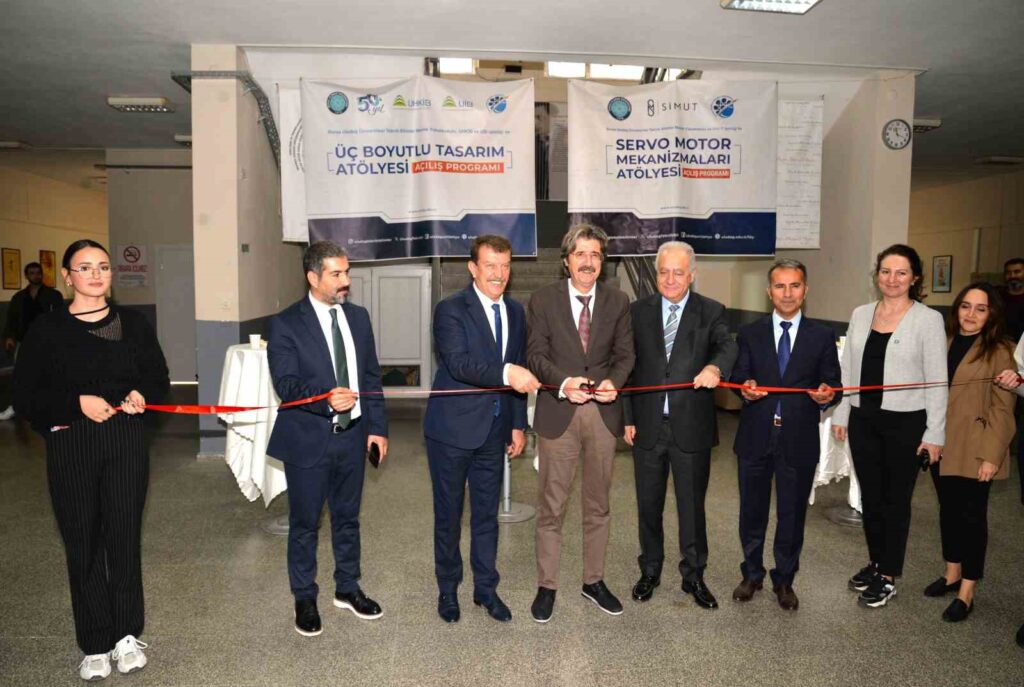Incentive support for environmentally friendly ships
The Minister of Transport and Infrastructure, Abdulkadir Uraloğlu, stated that under the “Regulation on the Encouragement of Building New Ships to Replace Decommissioned Ships with the Turkish Flag”, for the first time, privately-owned ships named Kapıdağ and Ayşenaz have benefited from the incentives…

Transport and Infrastructure Minister Abdulkadir Uraloğlu announced that, under the “Regulation on the Encouragement of New Ship Construction in Place of Turkish Flagged Ships Decommissioned”, the first environmentally friendly Turkish flagged ships benefiting from the incentive will be built, namely the privately owned Kapıdağ and Ayşenaz vessels.
Uraloğlu attended the “Incentive Eligibility Certificate” Presentation Ceremony held within the scope of this regulation. Speaking at the signing ceremony organized at the ministry, Uraloğlu stated, “We are at a meaningful meeting where the first privately owned chemical product tankers, Kapıdağ and Ayşenaz, will be constructed as the first environmentally friendly Turkish flagged ships benefiting from the incentive, as part of one of the most important initiatives we have implemented for the renewal of our maritime trade fleet, the ‘Regulation on the Encouragement of New Ship Construction in Place of Turkish Flagged Ships Decommissioned’.”
Emphasizing that the maritime sector undoubtedly holds the largest share in international commercial transportation, Uraloğlu noted that 12.4 billion tons, or approximately 86%, of the 14.3 billion tons of cargo transported globally in 2023 was carried by sea. Minister Uraloğlu stated, “In our country, we see that the figure is close to 450 million tons, with 87.5% in terms of tonnage and 54.8% in terms of value being realized by sea. Due to the low cost and efficiency advantages, maritime transportation is indispensable for sustainable economic development and prosperity. This situation has made the maritime sector the most strategic sector in global trade. Additionally, the maritime sector has evolved beyond just a means of transportation in the 21st century. The shipbuilding industry, new technologies used in ports and ships, increasing sectoral energy efficiency, port services, maritime tourism, and yachting have transformed into a broader sector, commerce, and service branch encompassing the management of the marine environment,” he expressed.
“Our maritime sector has shown significant developments under the leadership of our president, who is the son of a sailor, over the last 22 years.”
In this context, emphasizing Turkey’s key position in maritime transportation and international trade activities due to its control over the Istanbul and Çanakkale Straits, which are among the most important straits in the world, Uraloğlu stated, “The world is located in a very important geography for maritime activities. Our biggest goal is to evaluate this rich potential of our country in the best way and to rise to higher ranks in global maritime. I would like to proudly state that our maritime sector has shown significant developments under the vision and leadership of our president, who is the son of a sailor, over the last 22 years. Today, Turkey is building the future of both our geography and global maritime trade.”
The Turkish maritime trade fleet is the world’s 12th largest fleet with 2,028 ships over 1,000 gross tons and a carrying capacity of 48.9 million deadweight tons.
Pointing out that the size of the commercial fleet and the age of the ships in the fleet are very important factors for the development of maritime transportation, Uraloğlu emphasized that, as of the end of 2023, there are 2,028 ships over 1,000 gross tons in the Turkish maritime trade fleet. He recalled that the total carrying capacity of these ships makes Turkey the country with the 12th largest fleet in the world, with a material value of approximately 25 billion dollars, while also noting that the average age of these ships is 21.4 years. Uraloğlu stated, “In this context, one of our ministry’s many efforts to rejuvenate our fleet is the ‘Regulation on the Encouragement of New Ship Construction in Place of Turkish Flagged Ships Decommissioned’. This regulation has been updated based on sectoral demands and was published in the Official Gazette dated March 23, 2024. The purpose of our regulation is summarized as supporting the renewal of our country’s maritime trade fleet and creating a harmless, efficient, safe, and sustainable transportation system in cabotage and international waters. Our regulation covers commercial ships registered in our ship registries that are between 50 and 50,000 gross tons and are 20 years or older.”
“A $6 million incentive for the transformation of the first two environmentally friendly Turkish flagged ships.”
Uraloğlu expressed that the new ships to be constructed with the received incentives will convert their main propulsion systems to an environmentally friendly energy source, stating, “Today, we are together for the transformation of the first two private sector ships within this scope. As a result of the approval of the application made to our ministry by Hicri Ercili Maritime Inc., we are providing a total of $6 million in incentives for two ships, with $3.2 million for the 5,499 gross ton Kapıdağ chemical product tanker and $2.8 million for the 5,401 gross ton Ayşenaz chemical product tanker. The oil tankers to be constructed to replace these decommissioned ships will each be approximately 6,283 gross tons and will be the first environmentally friendly Turkish flagged ships to benefit from the incentives,” he emphasized, adding that they will be built equipped with a main engine that uses Methanol fuel, considered a new generation fuel because it does not contain sulfur. “These ships will be the first alternative energy-powered, environmentally friendly ships in our fleet,” he noted.
Uraloğlu stated that these ships will serve as a great example and will increase the number of maritime companies benefiting from the incentives, highlighting that reducing ship-sourced emissions is of great importance in the fight against climate change. He pointed out that older ships have low energy efficiency, leading to high emission rates, and continued his remarks:
“On this occasion, we invite all our ship operators to take advantage of this incentive provided by our state to make new ship investments that will employ our people under the Turkish flag. Not only for ships but also for our port facilities, we aim to reduce emissions by updating the Green Port application we have been implementing for many years. With a mechanism we will establish, we will receive a 20 million Euro grant and 50 million Euro long-term affordable loan support from the European Bank for Reconstruction and Development for our sector. As we always state, our seas are our ‘Blue Homeland’. Just as every inch of our land means something, a grain of sand or a handful of water from our seas holds the same meaning and importance for us. We will rejuvenate our ships and rebuild them as alternative energy-powered, environmentally friendly vessels. We will redesign our ports as green ports. We know that every project and application we implement to protect the environment and seas is an important step towards leaving a safer world for future generations. With these thoughts, I thank the managers of Hicri Ercili Maritime Inc., who have the right to receive the first incentive certificate from the private sector, and the managers and employees of our General Directorate of Maritime Affairs who successfully implemented this regulation.”







